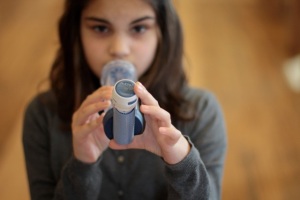 Most of us take breathing for granted, but as a child I suffered allergy related asthma problems. My father, over 80, uses an inhaler. Avoiding the overuse of medication, such as an inhaler, is important to lowering medical costs and improving quality of life. And that is where data comes in.
Most of us take breathing for granted, but as a child I suffered allergy related asthma problems. My father, over 80, uses an inhaler. Avoiding the overuse of medication, such as an inhaler, is important to lowering medical costs and improving quality of life. And that is where data comes in.
Children and the elderly are very poor at keeping diaries of when and where they used an inhaler, not that most adults are much better. But knowing that a person used their inhaler after walking past a weed-filled vacant lot, or after waiting at a bus stop, is exactly the kind of data that can be leveraged to effect change.
One company that is targeting this area is Propeller Health. Their product is a small cap that fits on a standard inhaler. Each time the inhaler is used, the cap records the time and location, using GPS circuitry. Later the data can be retrieved by the health care professionals that are providing management of the patient’s breathing problems.
Adding together data taken over long periods of time, or by aggregating anonymized data across multiple patients, a picture emerges of hot spots – times and places where breathing is hard.
Patients can then be coached to avoid these hot spots. A child can walk to school on a different street, avoiding the vacant lot. Simple changes in behavior such as these can have a dramatic effect on inhaler use.
That is the power of data. What is the power of open data? Open data allows that same anonymized data set to be shared by another organization that looks at the hot spots in a different way. Instead of avoiding them, this organization finds them attractive, because this organization plants trees.
Urban greening is important but suffers severe resource constraints. Trees have to be planted efficiently, where they will do the most good. targeting asthma hot spots with trees that produce oxygen, capture dust and provide shade increases urban quality of life and affects the health of the people that live there.
Propeller Health, Urban Releaf, and visionary city managers in places like Oakland and Louisville are making this story a reality today. This is the power of open data. But data can only be open when it is standardized. Data standards are a key leverage point in making the world a better place. Whether it is catching financial fraud or helping a child breathe easier, data standards matter.
(Photo credit: Propeller Health)
Thank you for clarifying that. I assume a parent or guardian must make the opt-in decision for a child.
Thanks for the thoughtful and encouraging overview. Just wanted to add that, in the Propeller case, individuals always retain the right to keep their information private. While we hope they see potential value in contributing anonymized information to aggregated datasets, we provide people with the ability to establish (and revise) exactly what information is shared and with whom as a matter of course.
I talked to Propeller’s CEO to research this post. The data was created within the framework of certain grants and municipal funding channels. Propeller doesn’t own the data in the sense of being able to control who else can see it – that actually goes to the city or health system involved. So if Louisville or Oakland sees the opportunity to share the data with Urban Releaf, that is the city acting as an intermediary, and taking the responsibility to scrub the data of personally identifiable information.
The core idea of mapping and timing use of medicines and devices has huge opportunity. Sensors keep being added to smartphones – hold one to your chest and it can record the sound of heart and breathing, then send the recording to your doctor.
Off the subject – which Tanna originated the phrase “the breath of little children”?
Really good case, David — thanks for posting. It isn’t entirely clear — is the inhaler data and metadata also free and open or, if not, is it contemplated by Propeller?